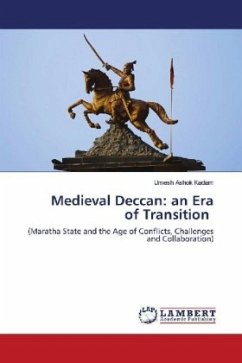The representation of the 'History of the Marathas' through varied historiographic representations has focused around the colonial discourses of the English East India Company in matters related to politics, diplomacy & interdependency in Deccan all through the 17th and 18th centuries. The gradual rise of the Maratha state under Chhatrapati Shivaji had a bearing on the politics and diplomacy across all the European powers in the Indian subcontinent, viz. the Portuguese, the Dutch, the English and the French right from its inception. The 17th, 18th century in Indian history were a precursor to the developments of the 19th century. It can be seen as a marker for Deccan as longue durée since Deccan in the 17th and 18th century saw marked changes in terms of economic structures, diplomatic policies, etc., with the rise of the Marathas. The European Companies also brought about such changes to the Indian sub-continent in terms of social and cultural policies that over the years it became the new order.The process of acculturation did not happen overnight, it was a process of slow gradual change as the change of mentalities, traditions and customs was a process of contest & conciliation.
Bitte wählen Sie Ihr Anliegen aus.
Rechnungen
Retourenschein anfordern
Bestellstatus
Storno








